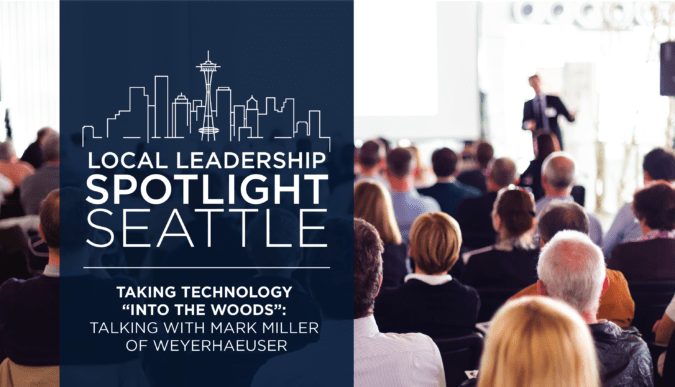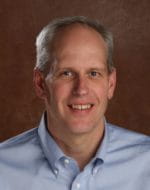
June 2018 | Q&A Spotlight
Taking technology into the woods: Talking with Mark Miller of Weyerhaeuser
Taking technology into the woods: Talking with Mark Miller of Weyerhaeuser
 Mark Miller is the vice president of information technology for Weyerhaeuser, one of the world’s largest private owners of timberlands, with more than 12 million acres of diverse and productive timberlands and 35 wood products manufacturing facilities across North America. He leads a team of more than 250 IT professionals.
Mark Miller is the vice president of information technology for Weyerhaeuser, one of the world’s largest private owners of timberlands, with more than 12 million acres of diverse and productive timberlands and 35 wood products manufacturing facilities across North America. He leads a team of more than 250 IT professionals.
What do see as the biggest challenge in your industry today?
Weyerhaeuser and the forest products industry are more than 100 years old. With that comes a lot of expertise and stability, and also a deep understanding of how to succeed selling primarily commodity products into a cyclical marketplace. As an IT organization, one of our biggest challenges is bringing high-value technology innovation to timberlands and wood manufacturing while maintaining a competitive cost structure. It’s our job to help our businesses make wise investments in the right technology to help them win over the long term.
How are you using technology to improve the way Weyerhaeuser runs?
For the past two years, our IT team has been heavily focused on activities related to integrating Weyerhaeuser and Plum Creek following our merger in late 2016. That has required tremendous effort and execution, but it has also introduced opportunities to modernize our IT environment and infrastructure. One way we are doing that is by migrating data center operations and key applications to the cloud. We also continuously look for ways to use emerging digital tools to optimize processes throughout our supply chain. For example, we now use mobile devices to record log loads digitally – a task previously always done on paper – and provide real-time access to data from the woods. There are many more such opportunities out there.
What technology trends in the Seattle market excite you the most?
I am excited by the level of innovation coming from all parts of our market – not just from technology leaders like Microsoft and Amazon, but also from small start-ups and initial public offerings (IPOs) such as Smartsheet and from established brands such as Nordstrom, Starbucks, and Alaska Airlines. Collectively, the enterprises in our area are doing remarkable things with technology.
As an IT leader, what do you do to stay connected to the tech community?
Our merger integration has required me to be highly focused on execution at Weyerhaeuser, although I do make time for the national Microsoft and Gartner CIO events every year to stay on top of key technology trends and developments. Locally, staying connected is less about events and more about the network of colleagues I have built over 30 years as an IT consultant and executive in the Seattle area. You sometimes hear that the IT community in Seattle is a “small place.” I don’t think that is true at all. There is a lot of connectedness, and I have found it very rewarding to be a part of such a tremendous community.
One of West Monroe’s core values is social responsibility, and we know Weyerhaeuser also has a strong commitment to giving back. What is one thing Weyerhaeuser is doing that particularly excites you?
Two of our four core values are sustainability and citizenship. We manage more than 12 million acres of timberlands, and it is vital that we do so in a responsible way that provides a sustainable resource for the world. Our manufacturing mills tend to be in rural areas, and there are so many ways in which our company supports these communities. It is inspiring to see the stories highlighted on our intranet – for example, how we bring classrooms into the woods to teach students about managing sustainability. We also do a lot of exciting work with Habitat for Humanity given its strong ties to the wood products industry.
Weyerhaeuser moved its headquarters to Seattle’s Pioneer Square a little over a year ago. What is your favorite thing about your new neighborhood?
I started my career with Accenture (then Andersen Consulting) just down the street, so to me it feels a little like coming full circle. It is truly fun being back in Pioneer Square, with its great access to dining, sports, and mass transit. Moving from a suburban to an urban location required some adjustments on the part of our people. After a year, though, it is clear the new local and office environment is having a very positive impact on our company culture.